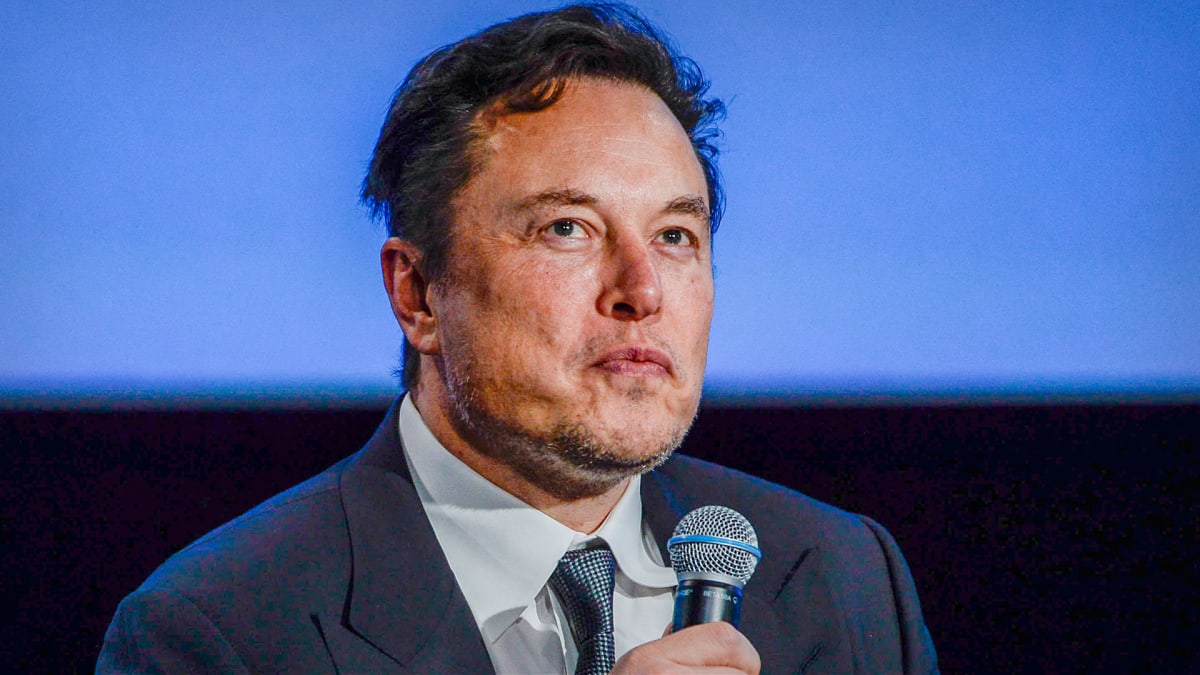
Elon Musk has gained a lot of influence and power over the past two years.
He became one of the most influential voices on the geopolitical scene by providing Starlink to Ukraine as it battled Russia. Starlink, an independent satellite internet-access service, has become the only communications system for the Ukrainian armed forces on the front.
In the context of Russia's war on Ukraine, the world learned of Starlink, which his SpaceX rocket-tech company has since deployed worldwide. For populations living in dictatorships, Starlink provides a window of freedom since it is independent and difficult to hack.
Tesla, the electric-vehicle maker of which Musk is co-founder and CEO, has also become the world's largest automaker by market capitalization. The Austin group has also become the center of the auto industry: Both upstarts and legacy carmakers compare themselves to Tesla (TSLA).
He also became the owner of Twitter, considered the town square of our time, the platform where opinion makers and trendsetters meet. He decided to make the social network the bastion of free speech, basically a platform where any message is acceptable as long as it does not violate the law.
Musks Owned an Emerald Mine? No, Elon Says
Musk's fortune, much of which is linked to Tesla's stock-market performance, has also soared since he's one of the largest individual shareholders. At one or another point he was the richest man in the world; he's now No. 2 with a net worth estimated at $176 billion as of April 12, up $39.4 billion this year, according to the Bloomberg Billionaires Index.
The billionaire has also become, according to progressives, one of the symbols of economic inequality between the wealthy, who get richer, and the poorest, who get poorer.
It is in this context that a narrative about him is often repeated: that Musk is not a self-made man but rather benefited from his family's wealth to get his start.
One assertion: His family owned an emerald mine in Africa. Musk has said more than once that this is false, but it keeps coming back and clearly annoys him. He has thus just taken an unprecedented decision, hoping to silence this rumor once and for all.
Musk is offering a $1 million award to anyone who can prove his family owned an emerald mine. The money will be paid in dogecoin, the cryptocurrency of which Musk is one of the evangelists and influencers.
"Elon Musk never owned an emerald mine," a Twitter account tweeted at Musk on April 12. The billionaire regularly interacts with the account.
"An open offer of 69.420 Doge to all the media outlets who are publishing false information. Send me a proof of its existence & take your doge," the account added.
Musk was quick to respond, announcing his own award.
"I will pay a million Dogecoin for proof of this mine’s existence!" the billionaire offered.
While Musk acknowledges having had a good start, he rejects the idea of having had a privileged life or having leveraged family money to become a billionaire.
The rumor about Musk growing up amid affluence and opulence was spread by his estranged father, Errol, during two interviews with Business Insider South Africa in February 2018.
Musk's Father Recalls a Wealthy Family
In these interviews, Errol Musk asserts without evidence that he once held a half share in an emerald mine in Zambia. He tells an unverified anecdote that at age 16 Elon Musk and his brother Kimbal sold two emeralds from the mine to Tiffany & Co. on Fifth Avenue in New York for $2,000.
"We were very wealthy,” Errol told Business Insider. "We had so much money at times we couldn't even close our safe.”
But in 2020 Errol seemed to regret his remarks of 2018 and said in a Facebook post that Elon did not owe him his success. Rather, he said Elon did it all on his own.
"My very limited involvement in a business transaction in Zambia in the 1980's had nothing to do with South Africa and that business can hardly be deemed to be have been inappropriate. Neither was it beneficial to Elon’s success in the USA, starting in about 1999," he wrote.
Elon Musk said on Sept. 21: "Errol ran out of money in the 90’s. My brother & I financially supported him & his extended family in South Africa since then on condition that he not do bad things. Unfortunately, he did do bad things :(,"
View the original article to see embedded media.
After graduating high school at 17, Musk left South Africa for Canada to avoid supporting apartheid through compulsory military service and also to try to seize economic opportunities in the U.S.
He attended Queen's University in Kingston, Ontario, and in 1992 transferred to the University of Pennsylvania, where he earned a bachelor's degree in physics and economics in 1995.
At 24, he entered a Stanford Ph.D. program in physics but left after just two days because he believed the internet had much more potential to change society than work in physics did.
Before SpaceX in 2002 and Tesla in 2003, Musk founded Zip2 in 1995, a company that provided maps and business directories to online newspapers. In 1999, Zip2 was acquired by computer maker Compaq (HPQ) for $307 million.




.jpg?w=600)


